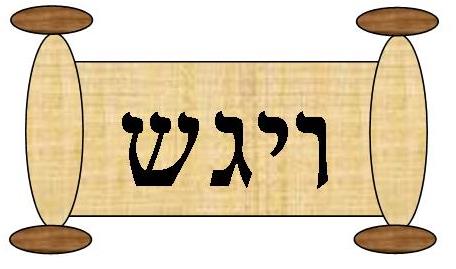This week’s parsha, Vayigash, deals primarily with Joseph revealing his true identity to his brothers and the subsequent descent of Jacob and his whole family to Egypt. Joseph sends his brothers, laden with food and goods, to inform Jacob that he is still alive and that Hashem has placed him over the whole Egypt. Wagons are sent for Yaakov to transport the entire family to Egypt.
When Jacob and his family, now known openly to be Ivrim (Hebrews), settle in Egypt, Joseph is aware of the potential for trouble. As a minority without support systems, they could be exploited; in times of trouble, they could become scapegoats. They must demonstrate that they will be good citizens; but should they excel in business, warfare and politics, or should they call less attention to themselves, and just blend in?
Joseph is thoroughly familiar with Egyptian society and the Pharaonic court. He wants to protect his family – foreigners in the dominant world-culture – from an assault on their identity, something that he had to endure. He, therefore, adopts the strategy of downplaying their accomplishments: The Torah states: “And Joseph said to his brothers and to his father’s household: “I will go up and tell Pharaoh, and I will say to him, ‘My brothers and my father’s household who are from the land of Canaan have come to me; and the men are shepherds, for men of livestock have they been, and they have brought their flocks and their cattle and all that is theirs.’ And it will be, when Pharaoh will summon you, and say, ‘What is your occupation?’ You shall say, ‘Men of livestock have your servants been, from our youth until now, both we and our forefathers,’ so that you will live in the land of Goshen; because every shepherd is an abomination of Egypt” (46:31-34).
Haemek Davar (R. Naftali Tzvi Yehudah Berlin, 1817-1893) explains that Joseph is trying to preserve his family’s sanctity through segregation. By “keeping a low profile,” living apart as lowly shepherds in Goshen, they will not be a threat. They also can be overlooked and thereby remain untainted by Egypt, and less influenced by Egyptian idolatry.
Joseph here imitates his father Jacob’s self-effacing tone in dealing with Esau: “And I have acquired an ox and a donkey, sheep and a servant and a maid-servant, and I have sent to tell my lord, that I might find favor in your eyes”(Bereishit 32:6).
Joseph’s strategy will prove to be of limited effectiveness, because the next Pharaohs will view the Hebrews’ lowliness as repulsive, their very isolation as threatening, and will enslave and oppress them. But, for Joseph’s generation, it works.
Prepared by Devorah Abenhaim







